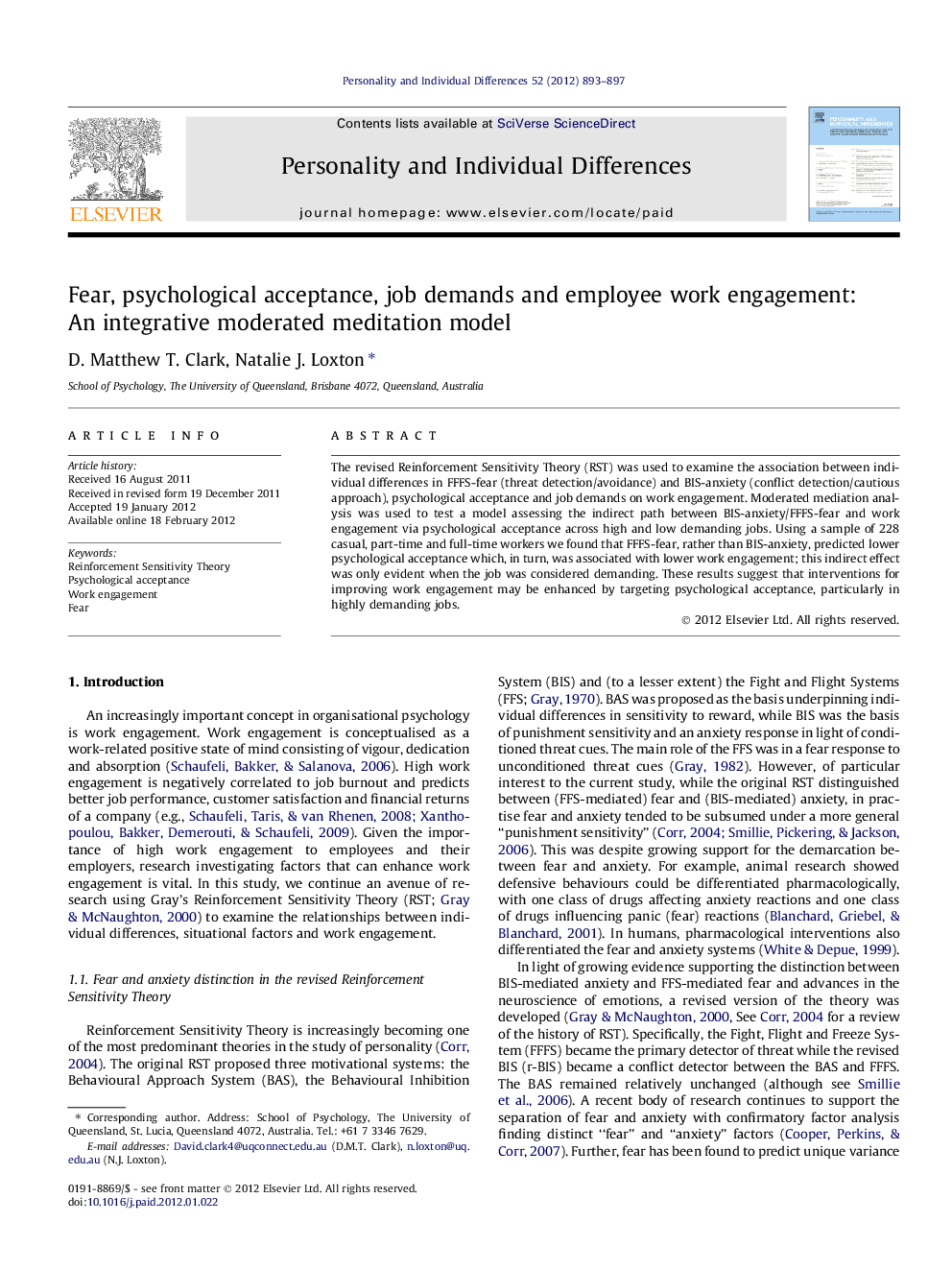| کد مقاله | کد نشریه | سال انتشار | مقاله انگلیسی | نسخه تمام متن |
|---|---|---|---|---|
| 891404 | 914038 | 2012 | 5 صفحه PDF | دانلود رایگان |

The revised Reinforcement Sensitivity Theory (RST) was used to examine the association between individual differences in FFFS-fear (threat detection/avoidance) and BIS-anxiety (conflict detection/cautious approach), psychological acceptance and job demands on work engagement. Moderated mediation analysis was used to test a model assessing the indirect path between BIS-anxiety/FFFS-fear and work engagement via psychological acceptance across high and low demanding jobs. Using a sample of 228 casual, part-time and full-time workers we found that FFFS-fear, rather than BIS-anxiety, predicted lower psychological acceptance which, in turn, was associated with lower work engagement; this indirect effect was only evident when the job was considered demanding. These results suggest that interventions for improving work engagement may be enhanced by targeting psychological acceptance, particularly in highly demanding jobs.
► Psychological acceptance was tested as a mediator of fear and anxiety on work engagement.
► Fear but not anxiety was associated with psychological acceptance.
► Psychological acceptance mediated the association between fear and engagement.
► This indirect effect occurred under high but not low work demands.
► Acceptance offers an ideal avenue of intervention between vulnerability and outcome.
Journal: Personality and Individual Differences - Volume 52, Issue 8, June 2012, Pages 893–897